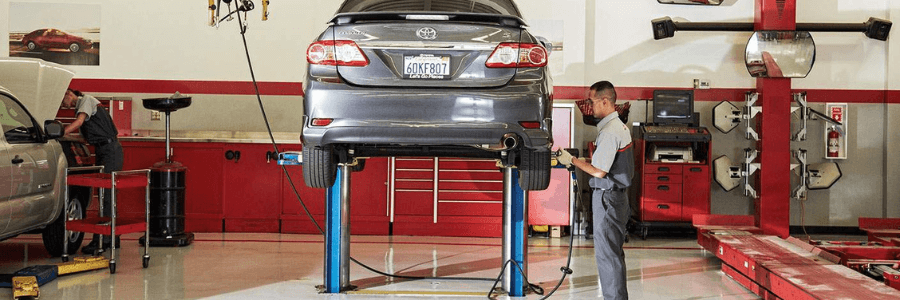4 Common Issues that May Harm Your Toyota Vehicle

If you own a Toyota, you know that you can expect quality performance and reliability. But even the best-made vehicles can have repair problems.
Avoid these four common Toyota repair problems to keep your car running smoothly for years to come. Start by learning more about the signs and causes to watch out for.
1. Broken Air Conditioning Compressor
If your Toyota's air conditioner isn't working as well as it used to, there's a good chance that the compressor is the culprit. The compressor is the heart of the AC system, and if it's not working correctly, the whole system will suffer.
There are a few different ways that a compressor can fail. The most common is simply wear and tear. Over time, the bearings in the compressor can wear out, and the seals can start to leak. This will cause the compressor to work less efficiently, and eventually, it will fail altogether.
Another common cause of compressor failure is a loss of refrigerant. If there's a leak in the system, the refrigerant will escape, and the compressor will have to work harder to maintain the proper pressure. This can lead to overheating and eventual failure.
2. Blown Head Gasket
A blown head gasket in a Toyota can be a severe problem. If not fixed, it can lead to engine damage and even engine failure.
The head gasket seals the combustion chamber and prevents coolant or oil from leaking into the cylinders. A blown head gasket can cause the engine to overheat and can also cause coolant to enter the cylinders and mix with the oil. This can cause the engine to seize up and fail.
If you have a blown head gasket, it's important to monitor your engine's temperature. If it starts to run hot, you'll need to pull over and turn off the engine as soon as possible. Allowing the engine to overheat can cause even more damage.
3. Transmission Replacement
When you don’t change your transmission fluids every 2-3 years, you could be due for a transmission replacement. Regular transmission fluid changes will keep the fluid clean and free from debris, allowing the engine and all other parts to operate smoothly.
Transmission replacement can be a costly repair, but it may be the best option if the condition of your transmission is irreversible.
There are a few signs that you may need a transmission replacement, including:
- Your car is slipping out of gear
- Your car is having trouble shifting gears
- Your car is making strange noises
If you notice any of these problems, it's essential to take your car to a mechanic to have it checked out. They will be able to diagnose the problem and let you know if a replacement is necessary.
Should your mechanic recommend a transmission replacement, you should know a few things. First, the cost of the replacement will vary depending on the make and model of your car. Second, the replacement process can take several hours, so you'll need to ensure you have a ride home or a place to stay while the work is being done.
4. Blown Motor
A blown motor can be a severe problem for your Toyota. It can cause your car to lose power and performance, and it can even be dangerous.
There are a few signs that your Toyota might have a blown motor. One is if your car starts to make strange noises. Another is if it starts to lose power or performance.
A timing belt failure can also cause a blown motor. The timing belt is responsible for synchronizing the pistons' movement with the crankshaft's rotation. If it snaps, the pistons will no longer sync with the crankshaft, and the engine will seize up.
Final Thoughts
There are four main repair problems that you should avoid for your Toyota vehicle: a broken air conditioning compressor, a blown head gasket, a transmission replacement, and a blown motor. Each of these problems can be expensive to fix and cause significant damage to your vehicle. So, remember to schedule regular maintenance checks to keep your Toyota functioning at its best.
If you experience these problems, take your vehicle to Nelson Toyota. Our Toyota certified technicians offer trustworthy vehicle maintenance and repair services. Book a service online or message us for your inquiries.